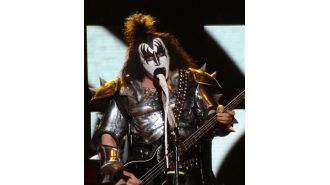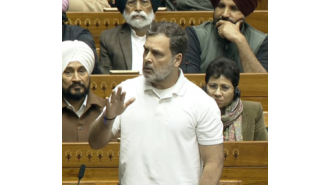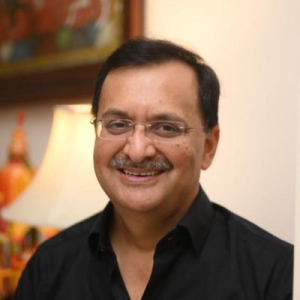A Dutch performer was disqualified from Eurovision right before the final show.
Netherlands' representative, Joost Klein, was a top contender in the song contest but was disqualified before the final due to a possible threat against a Swedish officer.

In a shocking turn of events, the Netherlands' entry in Eurovision was disqualified just hours before the grand final. It was a heartbreaking moment for singer Joost Klein, who was a hot favorite to win the international song contest. But unfortunately, a backstage incident involving alleged threats made to a Swedish police officer led to his disqualification.
As the news spread, there were conflicting reports about whether Klein himself was involved or if it was a member of his team. The situation became even more complicated when Klein was banned from participating in the final two dress rehearsals on Friday. The European Broadcasting Union (EBU), which organizes the event, stated that they were investigating an "incident" and it would not be appropriate for Klein to perform while the legal process was underway.
According to the EBU, the Swedish police were investigating a complaint made by a female member of the production crew. They also stated that Klein would not receive any points from the national juries or Eurovision viewers, and the Netherlands would not appear on the contest scoreboard. However, Dutch viewers would still be able to vote, as viewers from Eurovision member countries are not allowed to vote for their own nation's act.
This last-minute disqualification was unprecedented in the 68-year history of Eurovision, where countries have only been boycotted or expelled from the event. The decision left Dutch broadcaster AVROTROS, one of the public broadcasters that fund and broadcast the contest, furious.
The 26-year-old Dutch singer and rapper had been a bookies' favorite and a fan favorite with his song "Europapa." The song was an upbeat Euro-techno tribute to the continent and also a dedication to Klein's parents who passed away when he was a child. Despite rumors, the EBU clarified that the incident was not connected to any other performer or delegation member.
With Klein's disqualification, the final on Saturday night would now go ahead with just 25 entrants instead of the original 37. The event, which would be watched by an estimated 180 million viewers worldwide, was being held in the Swedish city of Malmo. The competition was created after World War II to bring Europe together through music, and this year's event was happening against the backdrop of two wars across the continent.
Despite the contest's motto of "united by music," this year's event had attracted large protests from Palestinians and their supporters. They demanded that Israel be excluded from the event due to its conduct in the ongoing war against Hamas. Thousands of people were expected to march for the second time that week through Malmo, a city with a large Muslim population, to demand a boycott of Israel and a ceasefire in the war.
Dean Vuletic, an expert on the history of the contest, stated that despite the divisions, Eurovision was a unique event that brought Europeans together. He emphasized that the moment when everyone watches the same live broadcast across 37 countries was something special.
This year's entries ranged from emotional to eccentric, with performances like Finland's Windows95man, Ireland's Bambie Thug, and Spain's Nebulossa. The favorites included Swiss singer Nemo, who would be the first nonbinary winner if their operatic song "The Code" won, and Croatia's Baby Lasagna with his rock number "Rim Tim Tagi Dim."
However, sometimes songs could run afoul of the contest's ban on openly political statements. This year, Israeli singer Eden Golan faced backlash for her song "October Rain," which was seen as referencing the October 7 Hamas attack that triggered the Gaza war. She changed the title to "Hurricane" for the semi-finals and managed to make it to the final.
As the contestants were under immense pressure and facing abuse on social media, some, like Italy's Angelina Mango, chose to use their voice to make a statement. Swedish singer Loreen, last year's Eurovision champion, urged people not to shut down the "community of love" that was Eurovision. She believed that love was the only thing that could truly heal trauma, and the contest was a celebration of that love.










